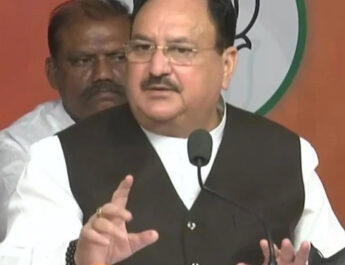From Our Bureau
NEW DELHI: A 5-member people’s tribunal headed by former Law Commission chairman and former Delhi High Court Justice A P Shah has decided to give its ruling in a week’s time on the serious charges of the Supreme Court going awry to pronounce questionable rulings against the civil liberties.
Placed before it on Saturday were three recent judgments, all by a Bench headed by Justice A M Khanwilkar who retired last Friday. It heard anguish by participants from Gujarat, Chhattisgarh and other states about these judgments.
One judgment pronounced on July 27, the top court fully empowered hands of the government by upholding the stringent provisions of the Prevention of Money Laundering Act giving all powers to the Enforcement Directorate. Another judgment of June 24 upheld the SIT’s clean chit to then Chief Minister Narendra Modi in the 2002 Gujarat riots and hauled up the petitioners knocking at the top court’s door while activist Himanshu Kumar’s petition for a CBI probe into the killings of 17 tribals by police and central security forces in Dantewara district in 2009 was dismissed and he was fined Rs 5 lakh and a probe ordered in the charge to provide legal protection to the left-wing extremist Maoists by falsely accusing security forces.
Besides Justice Shah as its chairman, the people’s tribunal included former Patna High Court judge Anjana Prakash, former Bombay High Court judge Marlapalle, Prof. Virginius Xaxa, chair of 2014 high level committee on status of STs, and Syeda Hamid, former Planning Commission member.
Most stunning charges were levelled by senior advocate Kapil Sibal, who said he has left no hope in the Supreme Court as “if you think you will get relief from Supreme Court, you are hugely mistaken; I am saying this with full responsibility after completing shortly 50 years of practice in the Supreme Court.”
“Time has come to say the truth about the Supreme Court. If you think judgments are always delivered as per the law, you are mistaken,” he said, adding that he will still continue to go to the court and practice advocacy, but keeping hope in the institution as a “lacharee” (helplessness).
Citing flaws in the SIT probe in the 2002 post-Godhra riots in Gujarat, he said the Court went by the SIT reported based on the statements of police and other state officials and not on the version of the victims and witnesses to the violence.
Another senior advocate Nitya Ramakrishnan asserted that “abdication” and “distortions” are characteristic of the top court’s functioning. He referred to the court keeping pending the challenge to Article 370 and the judgment on the killing of Gujarat State Home Minister Haren Pandya.




